Kicking out squatters should be easy
No lease, no money, no problem! People are taking advantage of legal loopholes across the country
Squatting is when someone occupies a property they don’t own, don’t rent, and don’t have permission to live in.
In medieval England, if someone openly occupied land and the rightful owner didn’t kick you off the property after 10 or 20 years, the squatter could get legal rights to the property. It wasn’t adversarial because the idea was land was being kept productive.
50 years ago, squatting was part of social justice protests in neighborhoods where landlords had empty buildings that weren’t being maintained. Some of the most famous artists and musicians were squatting in abandoned buildings before making it big. Patti Smith, The Clash, Basquiat, Robert Mapplethorpe…it seems like every time I watch a documentary, there’s another mention of squatting. LA, New York, London—they all have “before they were famous” tales of celebrities settling in blighted buildings before (1) making it big or (2) a police raid.
Today, someone can live in an empty home for as little as 30 days and claim tenant status.
In New York, where squatting is illegal, homeowners can’t get rid of squatters.
Adele Andaloro went viral because she had a news crew filming her attempt to evict squatters in her New York home. She called the police, who arrested her for changing the locks on her own property to keep out squatters.
There was no lease, no tenant agreement of any kind. Strangers occupied her property while she was out of town. “Technically, he can't be kicked out. You have to go to court,” the NYPD said as they arrested the homeowner.
These recent squatting stories are alarming because of how fast everything escalates. Who’s got the time and money to spend months in court over clear cut cases of theft?
Of course mental health and substance abuse issues can be involved. The US has a growing number of desperate people with nothing left to lose. Those people need help, but the answer isn’t to let them steal homes from others. You know who’s not allowed to help? Churches and other charitable organizations that are trying to build accessory dwelling units (“granny flats”) as short-term housing solutions for people in need. They get stuck in the zoning and public engagement quagmire that works so hard to protect neighborhood character.
But it might surprise you that squatting isn’t just a practice for society’s poor and marginalized.
The internet, amazing as it is, makes it easy for squatters to spot and take over vacant homes. Savvy “agents” are using TikTok, Instagram, Airbnb, and real estate sites to find and share potential targets. They’re getting finder’s fees for teaching people how to exploit laws and claim tenant status.
In California, where squatting is illegal, homeowners can’t get rid of squatters.
Sascha Jovanovic is an LA dentist who rented out a guest house to a Harvard-educated tenant through Airbnb. She stopped paying rent, won’t leave, and they’ve been suing each other in a story that sounds too absurd to be real.
Barbara Gunner is an 81-year old who accepted a rent check from someone, and a judge ruled that’s considered a verbal lease. The squatters even admit they have nothing in writing and they don’t pay rent.
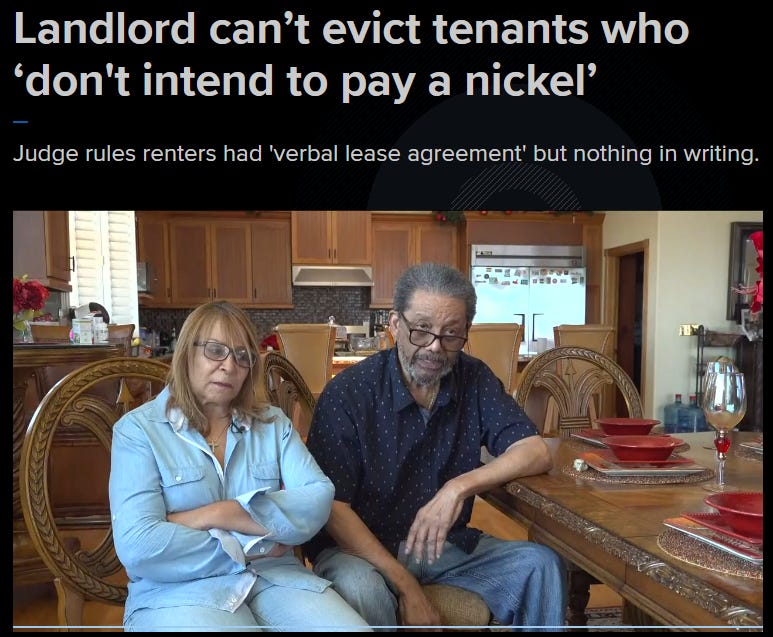
In Georgia, where squatting is illegal, homeowners can’t get rid of squatters.
The National Rental Home Council estimates that 1,200 single-family homes in the Atlanta metro area have been taken over by squatters.
Bloomberg reported that in Dekalb County alone, close to 300 intruder affidavits had been filed in 2023. Property owners have been reporting that if they’re able to get an eviction, it takes at least 6 months and costs tens of thousands of dollars.
“[Michael] Holmes told Channel 2 consumer investigator Justin Gray that he used his life savings to buy a DeKalb County home out of foreclosure eight months ago as a rental property. The alleged squatter living inside has filed more than 30 motions in court to tie up Holmes’ efforts to get him out.” —WSB-TV
“Lt. Col. Dahlia Daure told Atlanta-based ABC affiliate WSB-TV last week that she is part of the U.S. Army Reserves and is stationed in Chicago but was in the process of selling her home when a squatter moved in.” —Fox News
In both cases, police said these are civil matters, and there’s little or nothing they will do to remove squatters. Georgia has gotten to a boiling point, though. On Good Friday, their Squatter Reform Act (House Bill 1017) passed and is expected to be signed by the Governor.
All 50 states have some form of squatter rights.
This isn’t a fringe property rights issue in some far off place. With every state having varying degrees of protecting illegal acts, it’s difficult and expensive for homeowners to remove squatters. Yes, an illegal act is protected. No, I can’t make it make sense.
Liberal politicians have historically demanded affordable housing for people who can’t afford a big house on a big yard. Conservative politicians have historically demanded that housing providers be free to build what the market demands. An observer can look at these two groups and say, “Legalize housing, stupid.” Red, blue, and purple communities nationwide have imposed strict land use regulations for decades that exacerbate the housing crisis.
Pacific Legal Foundation is a group of attorneys that have been talking about the touchy subject. Here’s a portion of a recent X/Twitter thread where they make the important connection to supply and demand:
“Over the past several decades, our local, state, & federal governments have made it harder & more expensive to build affordable housing. Restrictions on where/what you can build—including outright prohibitions on duplexes & granny flats in many places—have limited the supply of affordable housing options.
Meanwhile, we have more people than ever in America that need housing: Our population grows every year, and the poverty rate is up. That’s the growing demand. Unless we increase supply, the problem will get worse.” —Pacific Legal Foundation
I’ve been noticing that urbanists and housing advocates are avoiding squatter stories like the plague. My guess is that’s because they don’t want to appear pro-landlord or uncompassionate. Or maybe their social media algorithms aren’t putting squatter battles in their news feed. Or maybe I’m naive, because check out the results of this recent poll:
I sure hope the Marxist point of view is a small minority. In the replies to one of my posts about property rights and squatting:
There are a few refreshing exceptions in urbanist circles speaking up about squatting. YIMBYLAND is a favorite.
I’m constantly talking about finding shared interests with perceived opponents. Maybe, just maybe, squatting will be the issue that unites NIMBYs and YIMBYs, because I’m sure neither group wants to see Lifestyles of the Squatty Famous shooting “how to steal a house” videos at their neighbor’s McMansion or duplex.


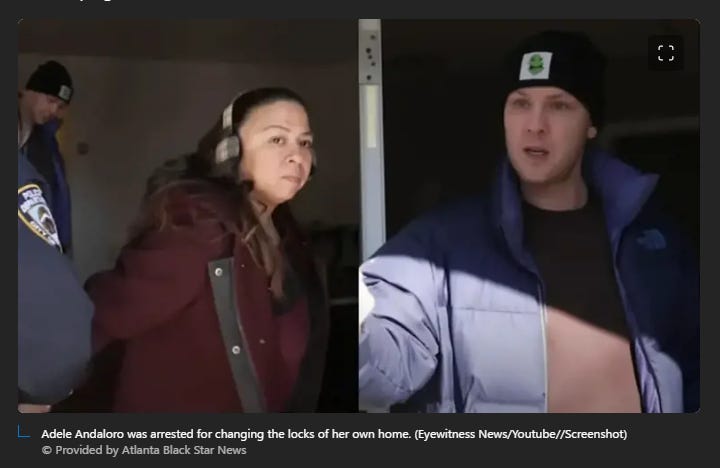
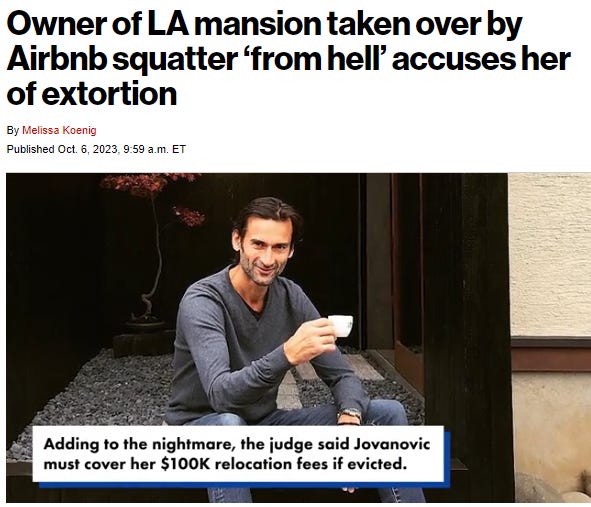

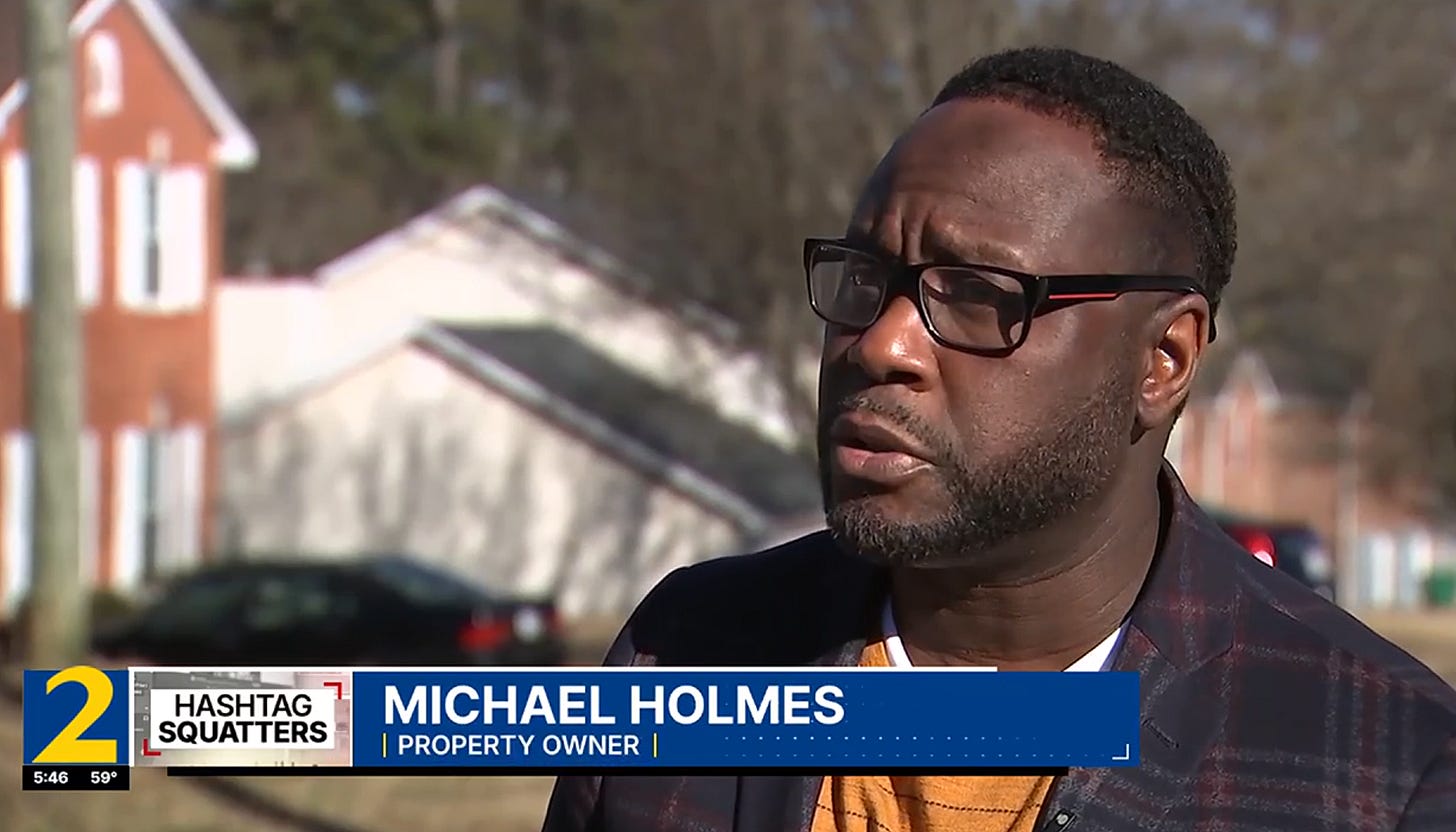
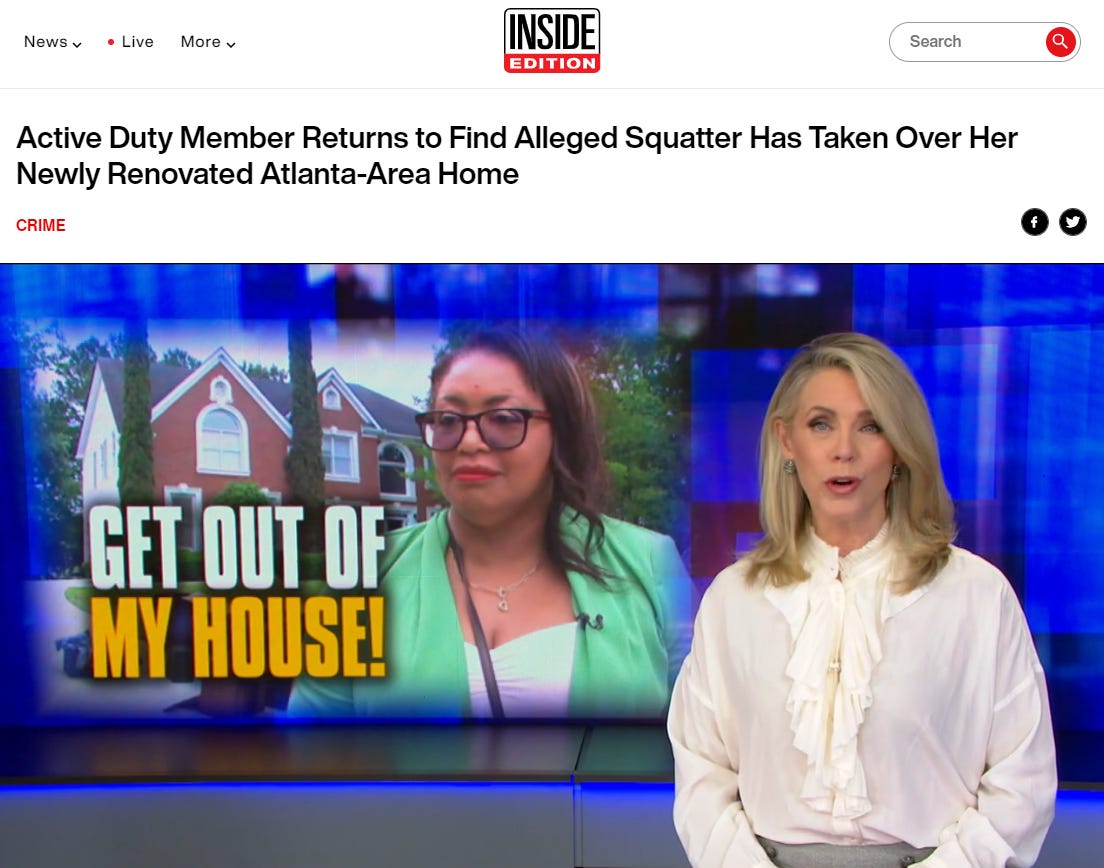
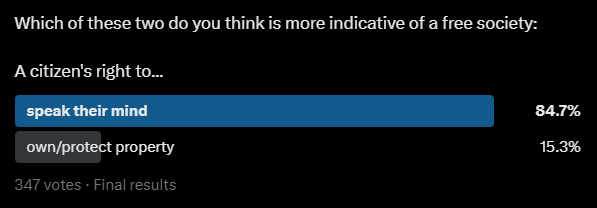
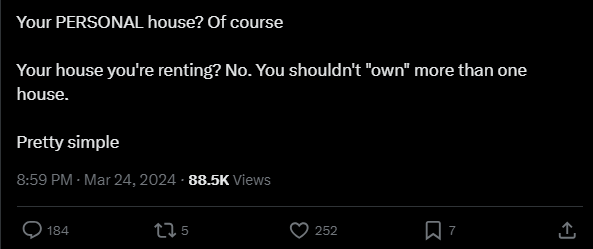
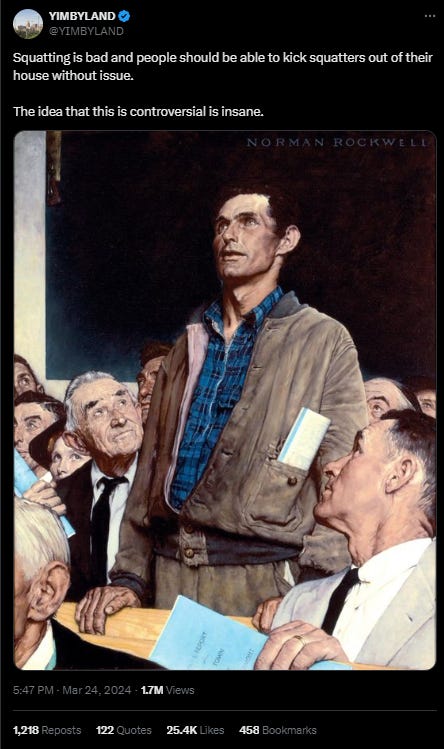
watching parts of the urbanist community embrace a sort of Marxism-lite and reject the field of economics has been extremely disheartening over the last decade or so. tbh, it's sort of alienated me from the cause. I think the reluctance of urbanists to weigh in on squatting is part of a larger issue of urbanism being derailed by larger culture war battles
This isn't really about squatters rights (legal rules like adverse possession). It's laws which protect tenat rights being exploited by squatters who falsely claim to have a lease. And I don't think it should be controversial that if you *do* have a valid lease the police shouldn't just trust whatever the landlord says and help kick you out (your property interests in the contract are now less important than the landlord's interests in the real property).
Luckily, even without fixing the overwhelmed court system, there is an easy solution thaf should make everyone happy. States should create a registry of both real property ownership (which they essentially already have) and of all rental leases -- or at least ones that come with eviction protection.
If there isn't a valid lease registered in the system under your name then the police can assume you're a squatter and take action. If there is one you do the normal eviction thing. And it requires approval of the property owner to enter such a lease into the system but the renter can check to verify it's entered before paying up.